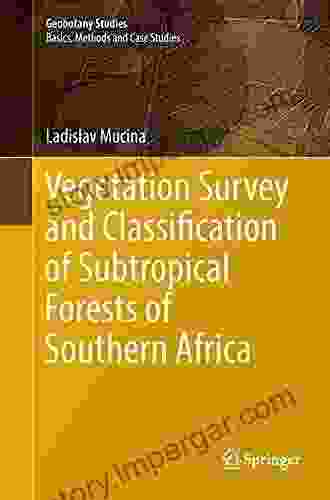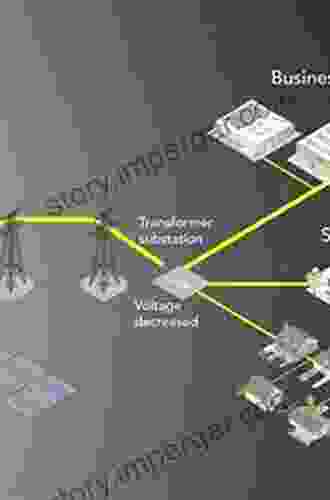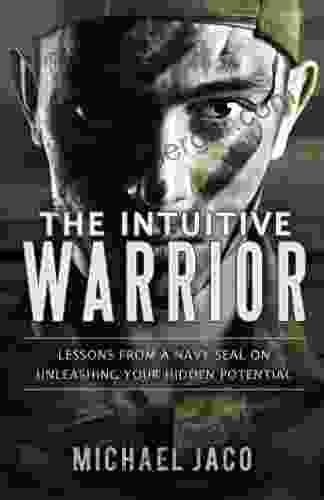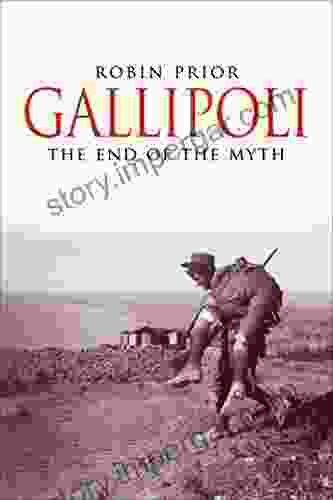The True Story of the World's First Scientific Expedition

In the early 16th century, the world was a much different place than it is today. Europeans had only recently begun to explore the oceans, and the vast majority of the world remained unknown. But one man was determined to change that. His name was Ferdinand Magellan, and he was a Portuguese explorer who had a dream of circumnavigating the globe.
4.1 out of 5
| Language | : | English |
| File size | : | 66510 KB |
| Text-to-Speech | : | Enabled |
| Enhanced typesetting | : | Enabled |
| Word Wise | : | Enabled |
| Screen Reader | : | Supported |
| Print length | : | 250 pages |
In 1519, Magellan set sail from Spain with a fleet of five ships. His goal was to find a westward passage to the Spice Islands, which were located in Southeast Asia. The Spice Islands were a major source of wealth for the Europeans, and Magellan hoped to find a way to get there without having to go around the Cape of Good Hope, which was a long and dangerous route.
Magellan's expedition was the first of its kind. It was the first time that a group of scientists had set out to explore the world with the goal of gathering knowledge about the natural world. The expedition included astronomers, botanists, zoologists, and cartographers. They were armed with the latest scientific instruments, and they were determined to make new discoveries.
The expedition was a success. Magellan and his crew circumnavigated the globe, and they made many important discoveries along the way. They discovered new lands, new plants and animals, and new cultures. They also proved that the world was round, and they laid the foundation for modern science.
But the expedition was also a tragedy. Magellan himself was killed in the Philippines, and many of his crew died from disease or starvation. But the legacy of the expedition lived on. The discoveries that Magellan and his crew made changed the way that Europeans understood the world, and they helped to pave the way for the Age of Exploration.
The Scientific Discoveries of the Magellan Expedition
The Magellan expedition made many important scientific discoveries. Some of the most important discoveries include:
- The discovery that the world is round. Before the Magellan expedition, many people believed that the world was flat. But the expedition's circumnavigation of the globe proved that the world is actually round.
- The discovery of new lands. The Magellan expedition discovered many new lands, including the Philippines, the Mariana Islands, and the Marshall Islands. These discoveries expanded the Europeans' knowledge of the world and helped to pave the way for future exploration.
- The discovery of new plants and animals. The Magellan expedition discovered many new plants and animals, including the pineapple, the potato, and the tomato. These discoveries introduced new foods to the Europeans and helped to improve their diets.
- The discovery of new cultures. The Magellan expedition encountered many new cultures, including the people of the Philippines, the Mariana Islands, and the Marshall Islands. These encounters helped to broaden the Europeans' understanding of the world and its people.
The Legacy of the Magellan Expedition
The Magellan expedition was a major turning point in human history. It was the first time that a group of scientists had set out to explore the world with the goal of gathering knowledge about the natural world. The expedition's discoveries changed the way that Europeans understood the world, and they helped to pave the way for the Age of Exploration.
The legacy of the Magellan expedition lives on today. The discoveries that Magellan and his crew made are still taught in schools, and they continue to inspire scientists and explorers around the world. The expedition is a reminder that anything is possible with courage, determination, and a thirst for knowledge.
4.1 out of 5
| Language | : | English |
| File size | : | 66510 KB |
| Text-to-Speech | : | Enabled |
| Enhanced typesetting | : | Enabled |
| Word Wise | : | Enabled |
| Screen Reader | : | Supported |
| Print length | : | 250 pages |
Do you want to contribute by writing guest posts on this blog?
Please contact us and send us a resume of previous articles that you have written.
 Book
Book Novel
Novel Page
Page Chapter
Chapter Text
Text Story
Story Genre
Genre Reader
Reader Library
Library Paperback
Paperback E-book
E-book Magazine
Magazine Newspaper
Newspaper Paragraph
Paragraph Sentence
Sentence Bookmark
Bookmark Shelf
Shelf Glossary
Glossary Bibliography
Bibliography Foreword
Foreword Preface
Preface Synopsis
Synopsis Annotation
Annotation Footnote
Footnote Manuscript
Manuscript Scroll
Scroll Codex
Codex Tome
Tome Bestseller
Bestseller Classics
Classics Library card
Library card Narrative
Narrative Biography
Biography Autobiography
Autobiography Memoir
Memoir Reference
Reference Encyclopedia
Encyclopedia Tommy Newberry
Tommy Newberry Max Felker Kantor
Max Felker Kantor Maureen Gilmer
Maureen Gilmer Tom Papa
Tom Papa Marney K Makridakis
Marney K Makridakis Mark Tarallo
Mark Tarallo Vanessa B Gorman
Vanessa B Gorman Ronald Syme
Ronald Syme Vijay Prashad
Vijay Prashad Valerio Magnasco
Valerio Magnasco Mitch Reardon
Mitch Reardon Mark Urban
Mark Urban Mark Ralkowski
Mark Ralkowski Ryan Green
Ryan Green Maggie Ford
Maggie Ford Yvonne Collins
Yvonne Collins Martin Ettington
Martin Ettington Paula Durlofsky
Paula Durlofsky Sharon A Suh
Sharon A Suh Richard A Posner
Richard A Posner
Light bulbAdvertise smarter! Our strategic ad space ensures maximum exposure. Reserve your spot today!

 Jerome PowellMeditations on First Philosophy: Unravel the Enigmas of Descartes' Masterwork...
Jerome PowellMeditations on First Philosophy: Unravel the Enigmas of Descartes' Masterwork... Orson Scott CardFollow ·15.3k
Orson Scott CardFollow ·15.3k Haruki MurakamiFollow ·13.3k
Haruki MurakamiFollow ·13.3k Owen SimmonsFollow ·4.8k
Owen SimmonsFollow ·4.8k Bryan GrayFollow ·18.9k
Bryan GrayFollow ·18.9k Ernesto SabatoFollow ·9.4k
Ernesto SabatoFollow ·9.4k Stuart BlairFollow ·6.1k
Stuart BlairFollow ·6.1k Willie BlairFollow ·13.5k
Willie BlairFollow ·13.5k Abe MitchellFollow ·4.5k
Abe MitchellFollow ·4.5k

 Roberto Bolaño
Roberto BolañoUnveiling the Beauty and History of the Medici Iris: A...
In the realm of...

 Theodore Mitchell
Theodore MitchellImproving Gut Health in Poultry: Unlocking the Path to...
In the ever-evolving field of...

 Victor Hugo
Victor HugoPersonalized Medicine with a Nanochemistry Twist:...
The future of healthcare...

 George Martin
George MartinA Year Of Wine: Perfect Pairings Great Buys And What To...
## Year of Wine: An Epic Journey Through the...

 Tom Hayes
Tom HayesDelve into the Enigmatic World of Southern Africa's...
Embark on a captivating journey through the...
4.1 out of 5
| Language | : | English |
| File size | : | 66510 KB |
| Text-to-Speech | : | Enabled |
| Enhanced typesetting | : | Enabled |
| Word Wise | : | Enabled |
| Screen Reader | : | Supported |
| Print length | : | 250 pages |












